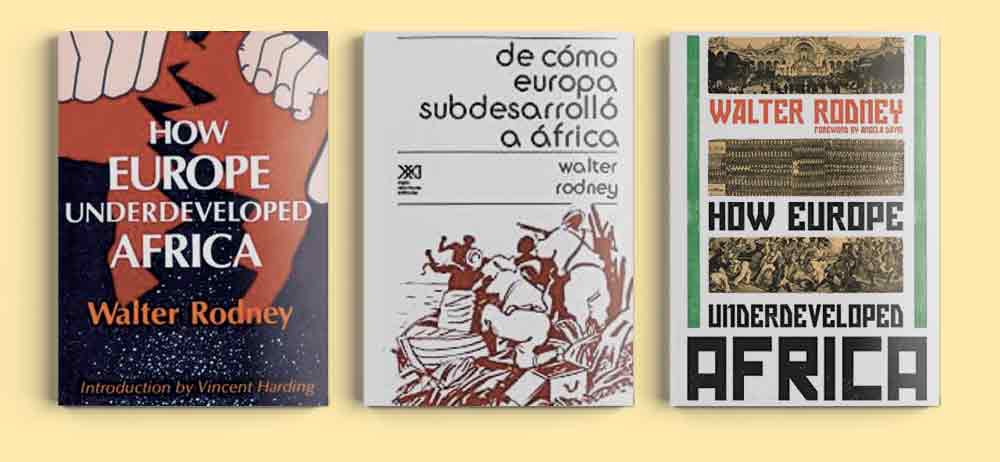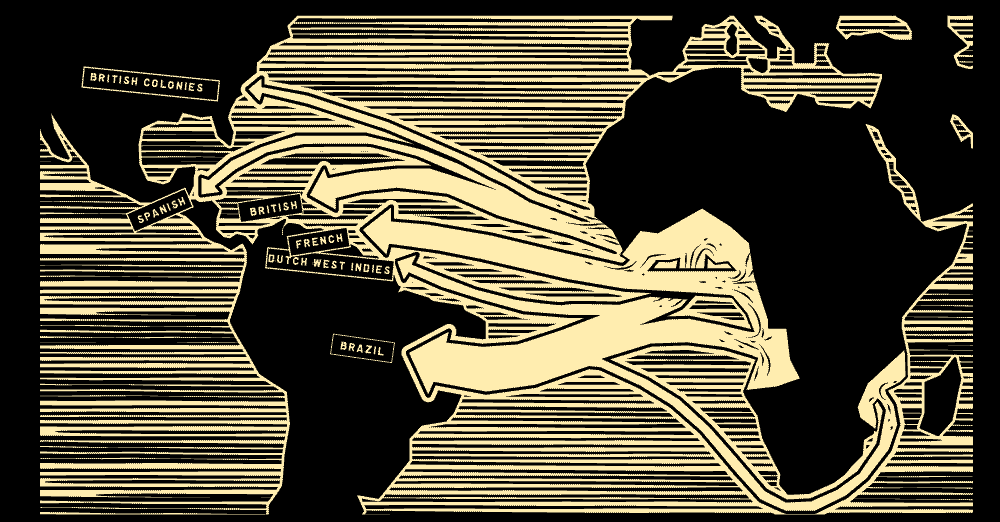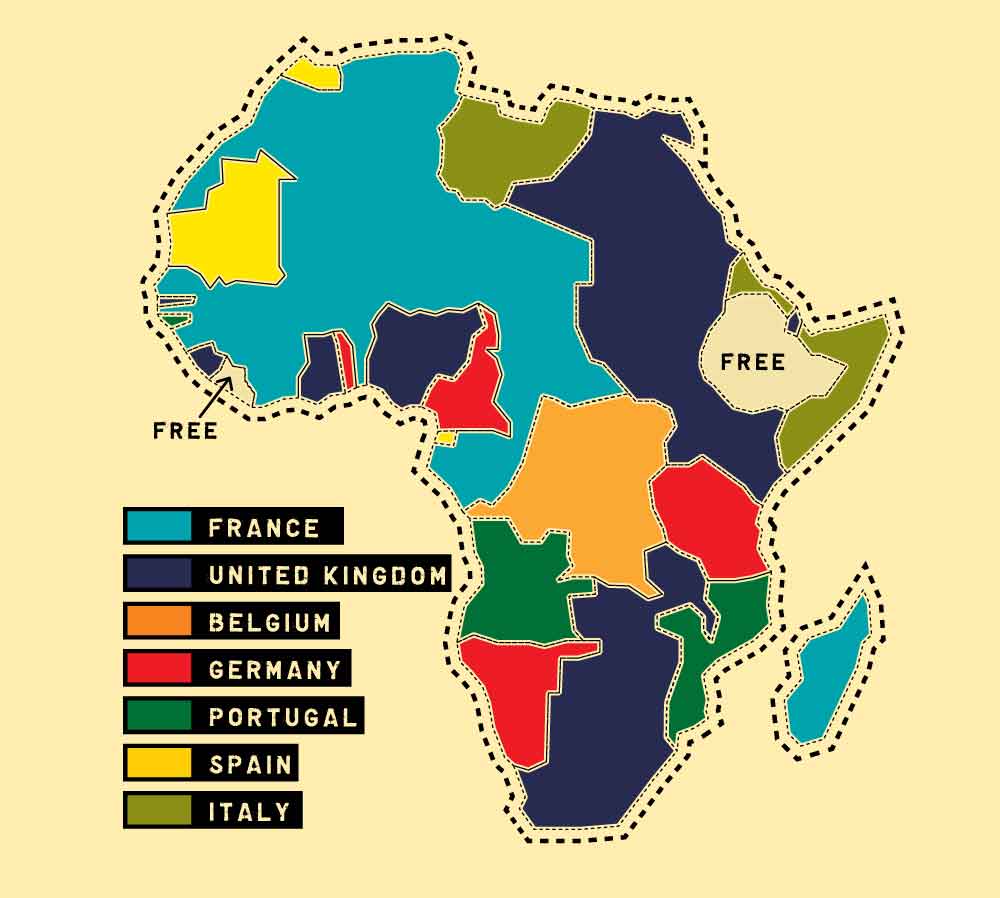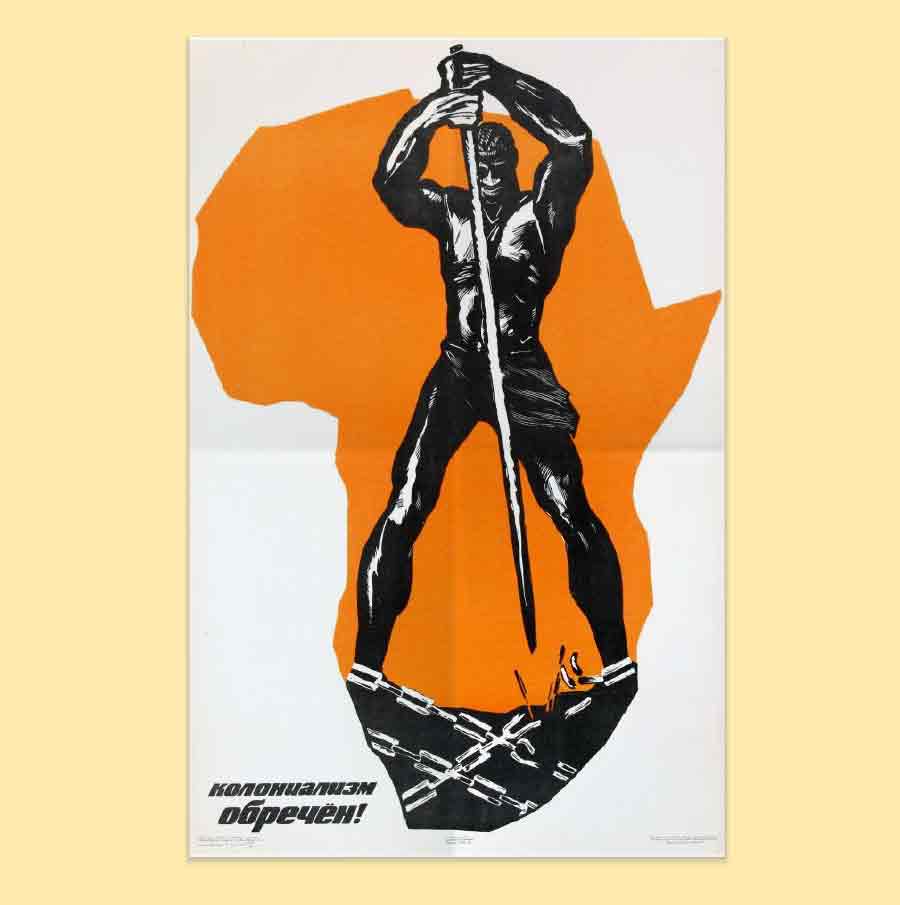
Walter Rodney was murdered 40 years ago, on June 13, 1980. A Guyanese activist and intellectual, Rodney was one of the most renowned exponents of Panafricanism, looking to build unity among African and Afro-descendant peoples.
His political and academic activities allowed him to take part in different struggles, as well as actively participate in the “Black Power” movement in the US and the Caribbean. After returning to Guyana he founded the Working Peoples Alliance in an attempt to organize the country’s popular sectors. The quick rise of the party turned Rodney into an enemy of the autocratic government of Forbes Burnham, which orchestrated his assassination.
In this article we try to concisely describe the main elements of Walter Rodney’s most important work, his book “How Europe Underdeveloped Africa.” The Guyanese historian explained African underdevelopment as the flip side of European development, analyzing the relation between the two continents over time, their characteristics and consequences.

Concerning development
Rodney begins by discussing the concept of development, relating it to a social group’s increasing capacity to regulate its internal and external relations. Rejecting the bourgeois perspective that understands development as a purely economic affair, he goes on to explain that once two societies with different systems come into contact, it is no longer possible to examine their respective developments independently.
In particular, and this is the main theme throughout the book, the Global South’s underdevelopment, and Africa’s specially, is a product of capitalist, colonialist and imperialist exploitation.
“African and Asian societies were developing independently until they were taken over directly or indirectly by the capitalist powers. When that happened, exploitation increased and the export of surplus ensued, depriving the societies of the benefit of their natural resources and labor. That is an integral part of underdevelopment in the contemporary sense.”


Africa before the coming of the Europeans
In order to argue that African underdevelopment is not the end result of an independent evolution, but rather a consequence of exploitation, Rodney tries to explore what is known about the continent prior to its first contact with the Europeans.
Examples of highly developed Africans societies before the arrival of the Europeans. (Click on the crosses for more information)
Development in Africa was a highly uneven process, with lots of contrasts. Nevertheless, towards the year 1500, most societies were at least entering a phase comparable to feudalism. Therefore, what was a small gap in comparison to Europe would only grow wider in the following centuries.
“The trade so readily distinguishable in every part of the continent between the tenth and fifteenth centuries was an excellent indicator of economic expansion and other forms of development which accompanied increasing mastery over the environment.”

Africa in the pre-colonial period
Understanding that development and underdevelopment have a dialectical relation, they help produce each other, the (essentially trade) relations between Europe and Africa starting in the XV century always favored the European side. And this relation of growing inequality was crucial for the development of European capitalism.
Though trade also involved raw materials (such as gold, or manufactured products), it had one central element: the slave trade.

The slave trade had devastating consequences on demographic, social, economic and political levels. There was hardly a spot in the continent spared from its effects, direct or indirect. Slavery would later become too rigid for capitalism, but it was a decisive phenomenon both for the accumulation of capital in Europe and the United States and for underdevelopment in Africa.
“Oppression follows logically from exploitation, so as to guarantee the latter. Oppression of African people on purely racial grounds accompanied, strengthened, and became indistinguishable from oppression for economic reasons.”

The roots of African underdevelopment
The four centuries (XVI to XIX) of trade with Europe laid the foundations of African underdevelopment. The slave trade and other activities only widened the gap between the two continents while shutting down African societies’ opportunities to develop.
“It was economics that determined that Europe should invest in Africa and control the continent’s raw materials and labor. It was racism which confirmed the decision that the form of control should be direct colonial rule.”

The pre-colonial period generated technological stagnation and economies that were ever more distorted by European interests and less integrated among themselves. While European capitalism moved towards its imperialist phase, Africa remained plagued by weaknesses. One of them was the incompleteness in establishing nation-states. The conditions for colonialism were all in place when the Berlin conference took place in 1885.

The colonial period
The colonial ruling of Africa had as its main element the expatriation of African surplus via different mechanisms, from the extraction of natural resources to the exploitation of African labor in sectors such as mining and agriculture. The colonial administrations, as Rodney explains, were little more than committees working on behalf of big capitalists.
Besides allowing for the extraction of huge profits which bankrolled advances in the Global North, colonialism also transferred the “cost” of wars and crises from the metropoles to the colonies. Colonizers had the power to set product prices, impose forced labor, and even recruit Africans to fight in distant war theaters.
Despite having lasted less than a century, this was a period of rapid changes, and the production output gap between Europe and Africa increased 15- to 20-fold. The US’ dominant position after the Second World War also applied to Africa, with Washington the new global “policeman” responsible for sustaining colonialist and imperialist structures around the world.
“Colonialism strengthened the Western European ruling class and capitalism as a whole. Particularly in its later phases, it was evidently giving a new lease of life to a mode of production that was otherwise dying. From every viewpoint other than that of the minority class of capitalists, colonialism was a monstrous institution holding back the liberation of man.”


(Neo)Colonialism as a system for underdevelopment
The colonial period brought massive setbacks throughout the continent. For example, colonizers stoked tribal divisions that were already being overcome in multiethnic states. In a nutshell, colonialism turned Africans into objects of history.
Western historians have tried to rewrite history and find “positive” aspects of colonialism, such as the construction of infrastructure or education. However, investment in Africa was but a tiny fraction of the profits extracted. Not only that, it was oriented solely towards maximizing exploitation.
Even so, the contradiction of the system became ever more insurmountable. An educated elite, a fledgling working class, and an exploited peasant majority, resisted colonialism and paved the way for independence. Nevertheless, the mechanisms for economic, social and political control were already in place. With new westernized elites in power, pauperized economies and lack of political unity, the conditions to perpetuate African dependency and underdevelopment were firmly met. The relations went from colonial to neocolonial almost seamlessly.
Rodney’s work was published in the first years of independence, but his prescient words remain as relevant as ever, and ring true beyond the African continent:
“A formerly colonized nation has no hope of developing until it breaks effectively with the vicious circle of dependence and exploitation which characterizes imperialism.”

Research and text: Ricardo Vaz. Artwork: Kael Abello.